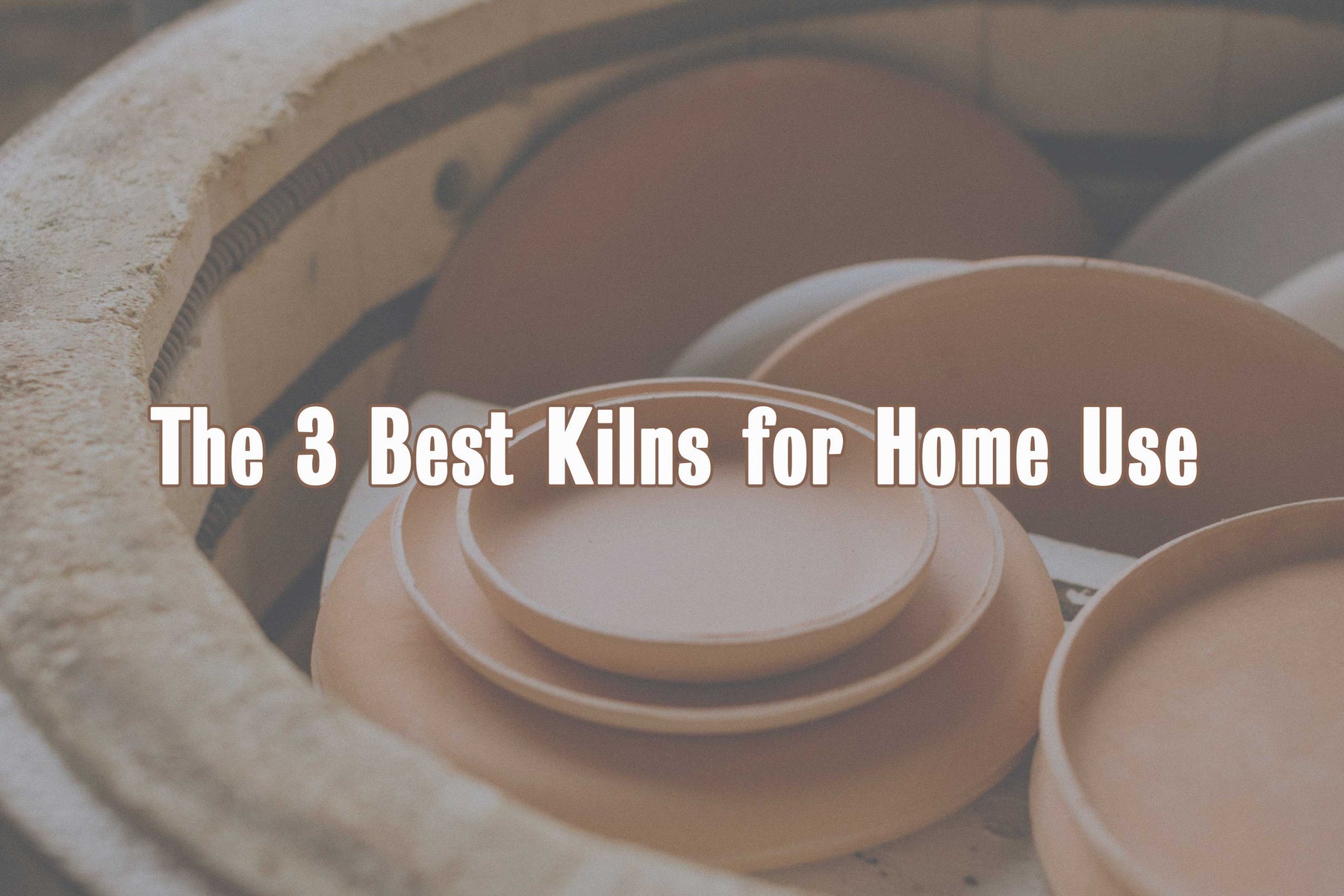
Best Kiln for Home Use
Exciting news! You're ready to start firing your beautiful ceramics from the comfort of your own home. Choosing the right pottery kiln is an exciting step in your creative journey. I created this guide to help you select the right kiln for home while considering essential factors like space, power requirements, and safety.
Our electric pottery kilns all come with digital controllers, taking the guesswork out of your firings. They make firings safer and easier, with precision control. You can simply set up your program and know that the kiln is doing the hard work for you! Safety and ease of use are key when firing a kiln at home.
The 3 Best Ceramic Kilns for Home Use:
Best Starter Kiln: Jen-Ken 11/9
- Great for beginning home potters
- Uses standard 120V outlet
- Our most popular test kiln
- Compact size works well in home studios
- Digital controller for ease of use
- 15amp Fires up to Cone 5 / 2100°F
- 17amp Fires up to Cone 9 / 2300°F
Best Mid-Size Option: Olympic 1818HE
- Excellent balance of size and functionality
- A popular choice for home pottery studios
- 240V power requirement
- Digital temperature control
- Fires up to Cone 10 / 2350 °F
Best Professional Size: Evenheat HF 2327
- Larger capacity for serious hobbyists and professionals
- Our most popular size for home and studios
- Requires dedicated 240V circuit
- Well-suited for established home studios
- Best for large ceramics or lots of small pieces
- Fires up to Cone 10 / 2350 °F
What to Consider When Choosing a Kiln for Pottery At Home
- Power Requirements
- 120V vs 240V
- Chamber size for how much you fire
- Dedicated Kiln Space
- Temperature
- Ventilation
- Proper Installation/Electrical
- Digital Controllers
1. Power Requirements
When setting up an electric kiln at home, voltage is one of the most critical factors:
- 120V Kilns: Great for beginners and small projects
- Plugs into standard household outlets (always double check Volts and Amps)
- Well-suited for small home studios
- Limited to smaller sizes
- 240V Kilns: Better for serious hobbyists
- May require special electrical installation
- Similar to an electric dryer's power needs
- Supports medium - larger kiln sizes
2. Size Options for Ceramic Kilns at Home
Choose your kiln size based on your space and production needs:
- Small, 120V (9"- 14")
- Great for beginners
- Well-suited for test pieces and small items
- Easiest to use in home settings
- Medium, 240V (15" - 23")
- Most popular kiln size for at-home pottery studios
- Balanced between capacity and convenience
- Excellent for bowls, plates, and medium sculptures
- Large, 240V (24"- 29"+)
- Ideal for high-volume production and large pieces
- Requires dedicated space and ventilation
- Higher power requirements
3. Home Kiln Ventilation Requirements
Proper ventilation is crucial when operating a kiln at home:
- Must have access to outside air
- Recommended locations include:
Garage
Dedicated kiln shed
Well-ventilated craft room
Near windows or doors for airflow
Safety Tips for Using a Kiln at Home
- Proper Installation
- Follow manufacturer guidelines
- Consider professional electrical installation
- Maintain proper clearance on all sides (at least 12", preferably 18")
- Ventilation Setup
- Install a proper ventilation system on medium/large kilns
- Keep area well-aired
- Consider a Downdraft Vent System
- Keep the kiln separate from living spaces
- Regular Maintenance
- Check elements regularly
- Clean between firings
- Inspect wiring periodically
Still have questions? Give us a call!
Choosing the right home pottery kiln depends on your unique needs, space, and electrical capabilities.
Whether you're just starting or looking to upgrade your home studio, there's a kiln that will match your situation.
Don't forget to check the specs to make sure the kiln fires to the right temperature for your pottery.
Call Us Today!




